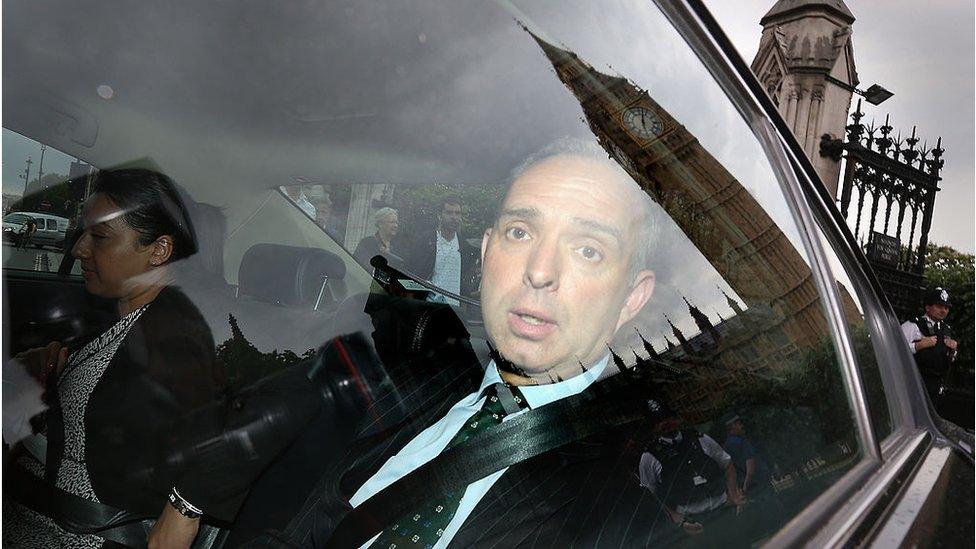Top civil servant blocks Tory costing plan of Labour policies
- Published

Civil service head Sir Mark Sedwill has dramatically blocked a Conservative plan to use civil servants to cost the Labour Party's fiscal plans.
Shadow chancellor John McDonnell had complained vociferously to Treasury Permanent Secretary Tom Scholar in a meeting on Tuesday over the Conservative plan.
One government insider described the situation as a "Whitehall farce".
But Labour argued it was interfering in the upcoming general election.
The opposition had been infuriated by the government's plan to use the civil service to calculate the cost of Labour's announced policies, and release it as an official document.
大象传媒 News understands these concerns were forcefully reiterated to the Treasury at a meeting with Shadow Chancellor John McDonnell this morning.
At the end of that meeting, described as a "courtesy call" by the Treasury's top official, Labour sources had assumed the document would be published.
Labour's legal team had also written to complain about the "ethics and propriety" of the decision to involve the civil service in the costings so close to an election.
On Tuesday afternoon, the Cabinet Secretary Sir Mark Sedwill, after a phone call with the Treasury, told the opposition the document would not, after all, be published.
One government insider called it a "Whitehall farce" occurring after the Chancellor had announced the document at Cabinet on Tuesday morning. They said it was an "established process" for a government to cost opposition policies in this way.
And previous Conservative and Labour Governments have indeed done this ahead of general elections and referendums, although there was not time to do this in 2017.
It has not in recent years been done days before the "purdah" period where civil servants are strictly restricted in their actions.
The opposition said it was a "scandal" and that the government had been caught "red handed" using civil servants in this way so close to an election, and at a time when the government has chosen not to do an economic assessment of its own landmark policy - the new Brexit deal.
- Published4 November 2019
- Published4 November 2019
- Published16 October 2019